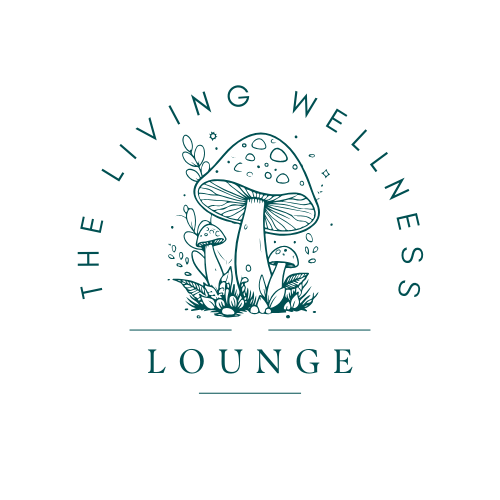Uncategorized
Are You Getting Enough Nutrients? Exploring the Gaps in Healthcare and Your Unique Needs
What Doctors Don’t Know – An Exploration of the Gaps in Healthcare
Last week, I was meeting with a chiropractor over coffee at one of my favorite Vancouver coffee shops (THATCHERS near downtown). The chiropractor and I were discussing our modalities and unique approaches to helping people feel good in their bodies and overcome chronic health challenges.
Partway through our discussion, a sweet older lady leaned in and politely interrupted. She couldn’t help but overhear our conversation about the work we do and wanted to ask:
“How do I know if I’m getting enough nutrients?”
Before I could answer that somewhat complicated question, she gave me some background that I think really highlights a lot of the confusion and challenges we face in modern healthcare.
She had been married to a doctor for over 60 years, and recently, he began experiencing symptoms of Alzheimer’s.
Alzheimer’s Disease
Alzheimer’s is a progressive neurological condition that affects memory, thinking, and behavior. Early symptoms often include mild memory loss, difficulty focusing, confusion, or trouble completing everyday tasks. These symptoms gradually worsen over time, impacting a person’s ability to function independently.
After dealing with his symptoms for some time, they came across a finding that a B12 deficiency can mimic the symptoms of Alzheimer’s.
B12 Deficiency Mimicking Alzheimer’s Symptoms
Vitamin B12 is essential for nerve health, red blood cell production, and cognitive function. A deficiency can cause symptoms like memory loss, confusion, and even balance issues—symptoms that closely resemble early-stage Alzheimer’s. Without adequate B12, the nervous system can’t function properly, leading to a wide range of symptoms that are often misdiagnosed.
Her husband, in his 60+ years as a doctor, had never known about this connection. However, supplementing with B12 was enough to eradicate his symptoms caused by the deficiency.
This, of course, left our new friend wondering about her own health: How could she tell if she was getting enough nutrients? A valid and important question.
She had done extensive research, reading medical journals and publications, but came away confused. There were conflicting opinions on how much was enough and which nutrients were most important.
She also noted that doctors don’t receive much training on nutrition in medical school. There’s a severe lack of education on nutrients—and that, my friends, is where I come in!
Doctors serve an essential role in our healthcare system, but that doesn’t mean there aren’t gaps. These gaps must be filled to help people thrive and keep on keepin’ on!
So, let’s dive in:
How Do You Know You’re Getting Adequate Nutrients?
I hate to say it, but… this question is multifaceted.
We must acknowledge that each of us is unique, and our dietary requirements are too. There are a few things to consider:
- Are you getting enough nutrients through food?
- Is your body able to absorb the nutrients it’s getting?
- Are you doing anything to deplete certain nutrients (e.g., certain pharmaceutical medications, smoking, or drinking)?
- What are your unique requirements?
How I Approach This with Clients
The way I approach this with clients is twofold:
-
For most people, we start by assessing their nutrient status through diet review, physical assessments, and symptoms. I explore what challenges they facing in their health and what connections may be present. Often, I begin with dialing in the basics and build from there.
-
If issues persist, it’s time to dig deeper. This may involve lab testing or other assessment tools to determine if a specific nutrient deficiency is at play.
If I suspect a specific deficiency, I often conduct a therapeutic trial to bring levels into an optimal range while addressing the why behind the deficiency:
- Is it a lack of that nutrient in the diet?
- Is it the body’s ability to absorb and utilize that nutrient?
- Is something depleting the nutrient?
When Should You Be Concerned About Nutrient Levels?
If you feel good—enough energy to get through your day, healthy libido, stable moods, and no chronic symptoms—chances are your nutrient levels are solid.
But if you’re experiencing symptoms, even mild ones like fatigue, pain, or mood challenges, it’s worth considering whether a nutrient imbalance could be contributing.
These topics don’t have easy answers. No test or method is perfect, but with a combination of tools and a focus on your unique physiology and symptom picture, relief is attainable.
Practical Tips to Ensure You’re Getting Enough Nutrients
Here are five steps you can take to help assess and improve your nutrient status:
-
Eat the rainbow! Include a variety of colors and pigments from fruits and vegetables in your diet every day. This is where your micronutrients (think vitamins and minerals) come from.
-
Eat whole foods, including whole grains. Whole foods and grains not only provide nutrients but also deliver them in a form that’s easily recognized and utilized by the body (unlike processed foods fortified with synthetic nutrients).
-
Eat slowly and mindfully. Give your body a chance to digest and absorb the nutrients from your meals.
-
Eliminate processed sugars. White sugar, corn syrup, and other refined sweeteners are not only void of nutrients but also deplete your body of essential vitamins and minerals during digestion.
-
Be mindful of depletors. Medications like metformin can deplete B12, smoking depletes vitamin C and magnesium, and alcohol can lower B vitamins and vitamin A levels.
In Summary
Assessing nutrient status can be a challenge. While working with a practitioner is the best way to ensure your needs are met, it doesn’t always require expensive lab testing. A combination of mindful eating, personalized assessment, and targeted interventions can make all the difference in ensuring you feel your best. In the meantime start incorporating the recommended tips, especially the one where you eat the rainbow!
Namaste,
Lila

